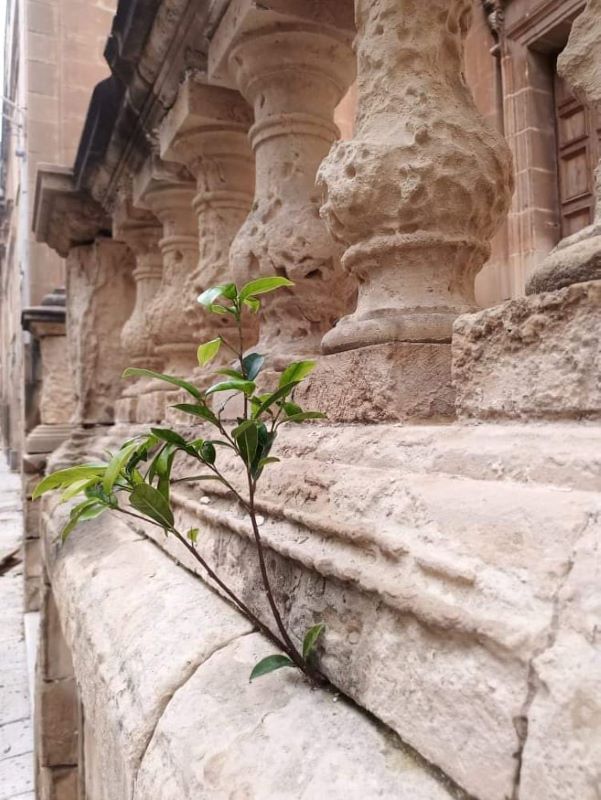Resilience as a resource: study on what helps chronic pain patients live fulfilled lives
Chronic pain is a global health problem that has a major impact on people's quality of life and their ability to maintain emotional and physical balance. In such circumstances resilience, or the ability to adapt and preserve oneself in the face of adversity, becomes a crucial resource for living life to the full, despite the limitations of pain.
Rīga Stradiņš University (RSU) doctoral student and acting assistant of the Department of Health Psychology and Paedagogy Elīna Zelčāne’s doctoral thesis analyses what helps people with chronic pain develop and maintain resilience.
 Leaves growing out of a crack in a building. Photo: Shutterstock
Leaves growing out of a crack in a building. Photo: Shutterstock
In a broader sense, resilience is defined as the capacity of a system (be it a person, an ecosystem, or an economy) to persist, adapt and transform in the face of change, while maintaining its identity. In the case of chronic diseases,
resilience is the ability to live as full a life as possible within the limitations of the disease.
How was the study conducted?
The study was based on small groups of patients (focus groups) and individual interviews. Through these, the experience of seventeen participants living with chronic musculoskeletal pain for five or more years, was collected to find out how they manage to adapt to hardship while, like a dandelion planted in a crack in the asphalt, never losing the drive to live the best version of their lives.
What helps people maintain resilience?
Based on the descriptions of the experiences of the patients interviewed, the researcher concluded that
physical activity adjusted to individual abilities, especially in-person group sessions, and various pain-relief methods help maintain vitality.
To sustain resilience in the long term, it is important to let go of unrealistic expectations and focus on the fact that there are different ways to continue to live as fully as possible in the current circumstances. In addition, it is necessary to be able to accept emotional and practical support when it is needed, without being dependent on external support. Participants acknowledged that by focusing on activities that are engaging, enjoyable and satisfying, it is easier to avoid making pain be the focus of their lives and maintain a positive outlook on the future.
After summarising and analysing the results of the study, Zelčāne concluded that resilience changes depending on the course the disease takes, a person's ability to accept pain-related aspects of life that cannot be changed, and the willingness to assume responsibility for maintaining quality of life despite the limitations of pain.
The defence of the doctoral thesis ‘Formation and Maintenance of Resilience in People with Chronic Musculoskeletal Pain’ by Elīna Zelčāne will take place on 11 November.
Related news
 Latvian scientists are preparing for the first BioPhoT project submissionFor Students, Innovation, For RSU Employees, For PhD Students, Research
Latvian scientists are preparing for the first BioPhoT project submissionFor Students, Innovation, For RSU Employees, For PhD Students, Research


